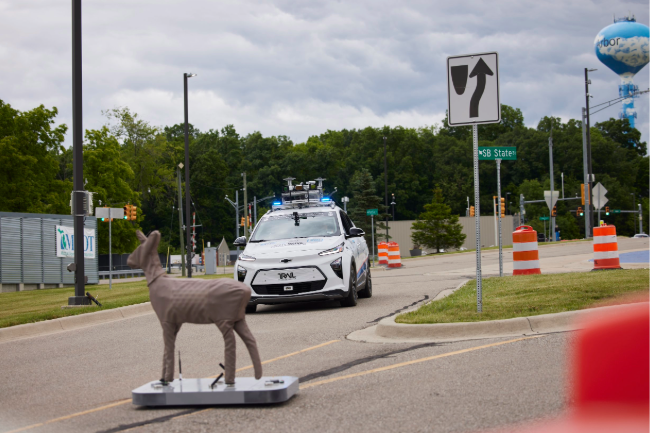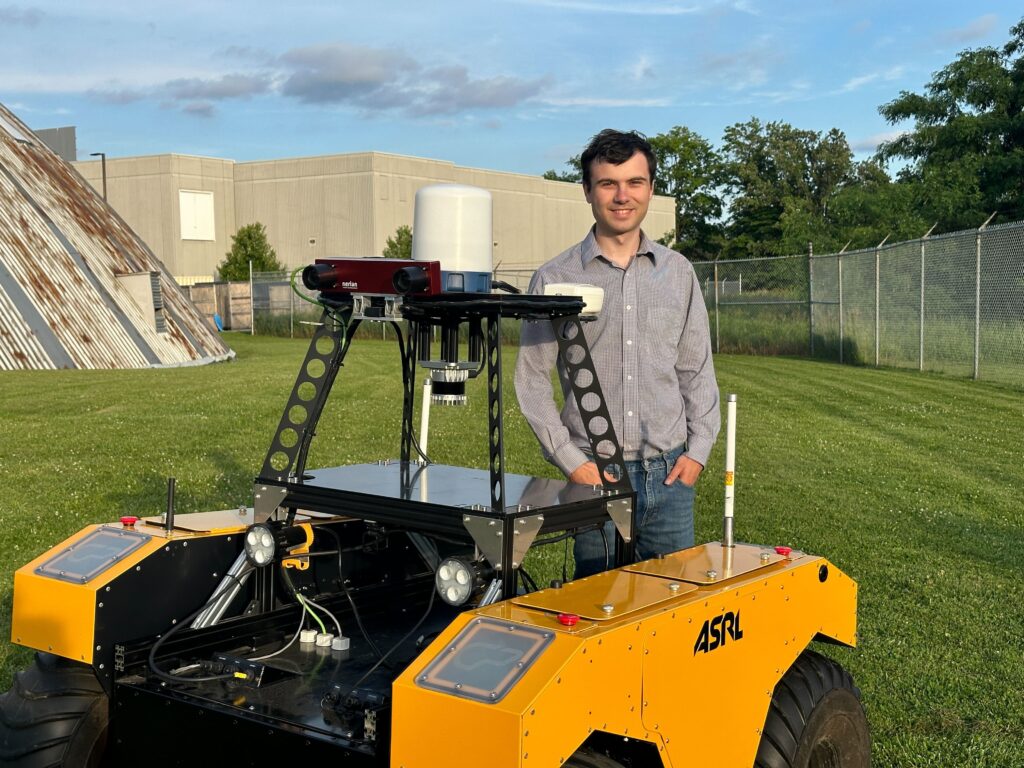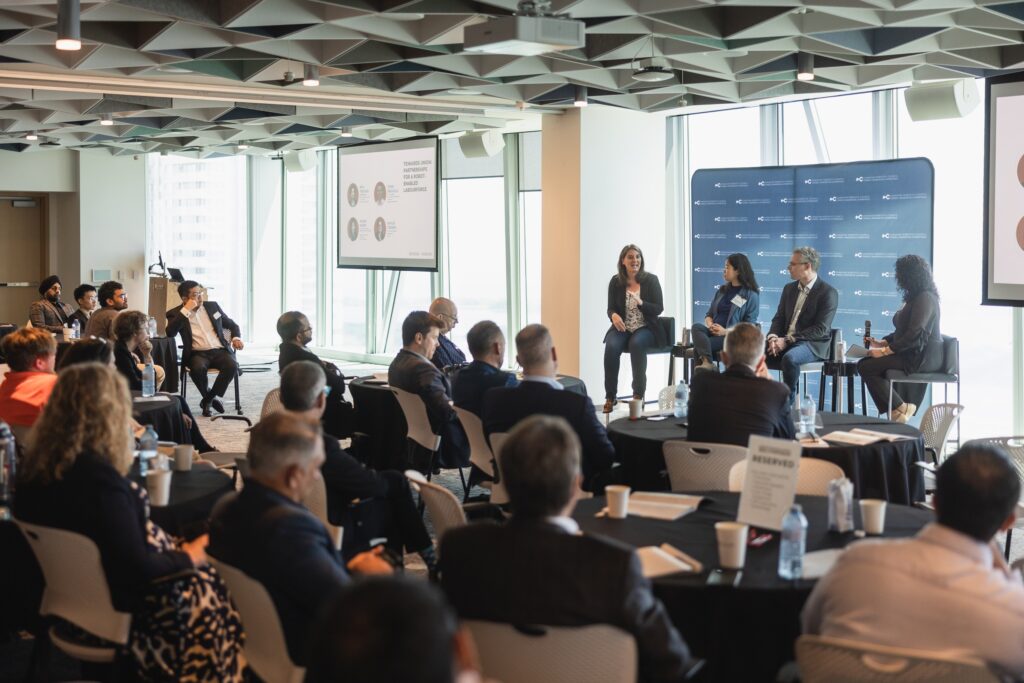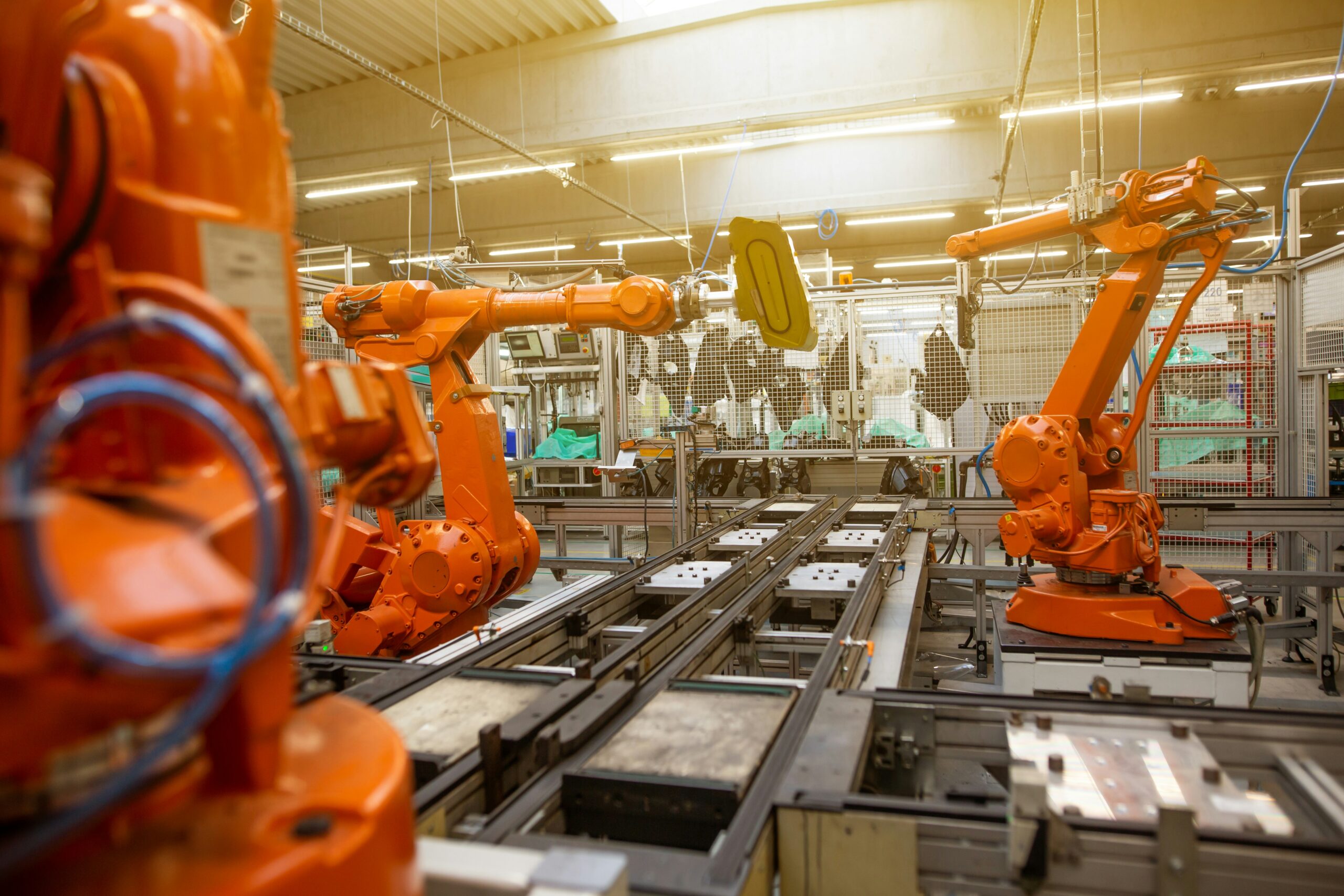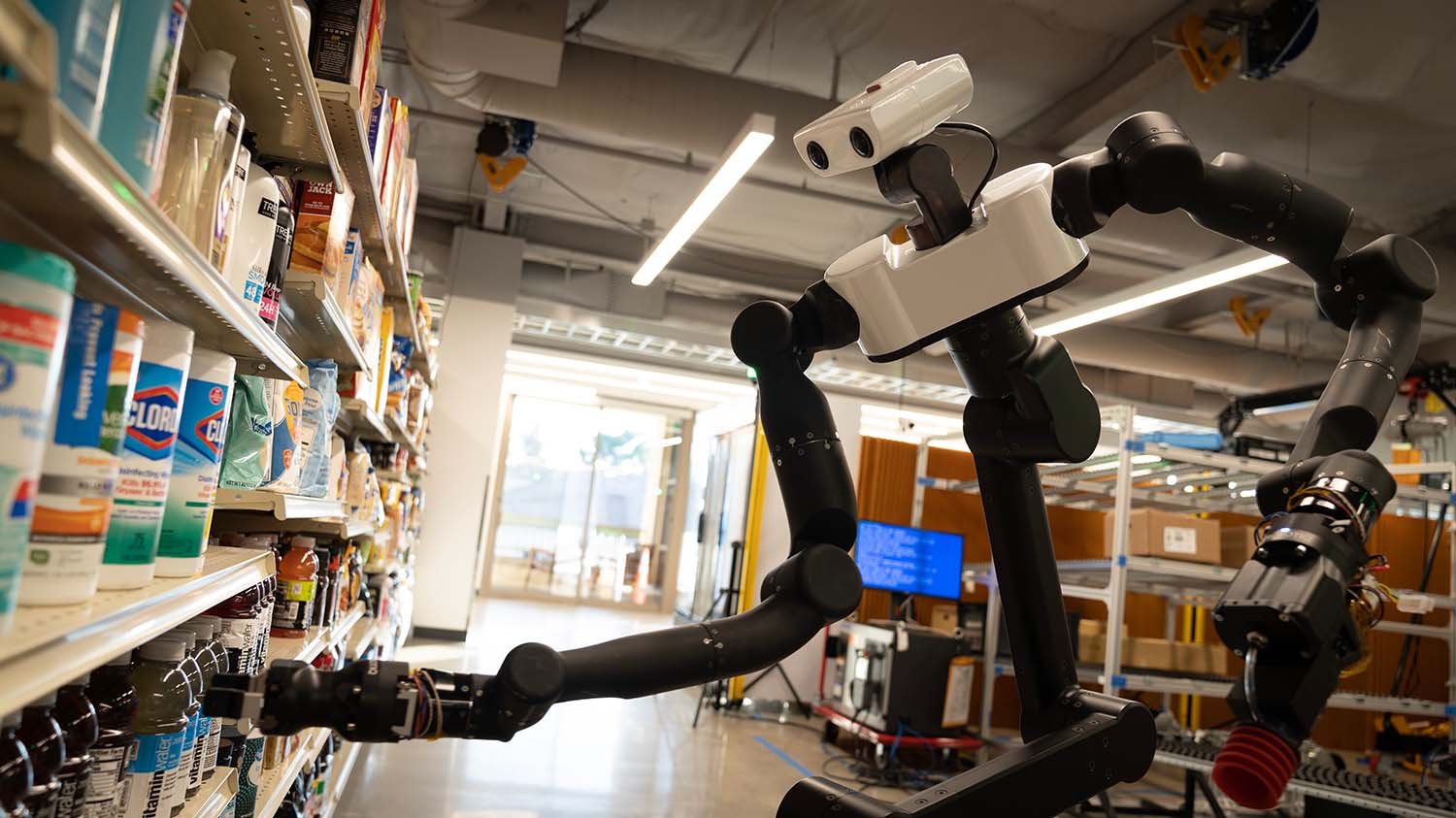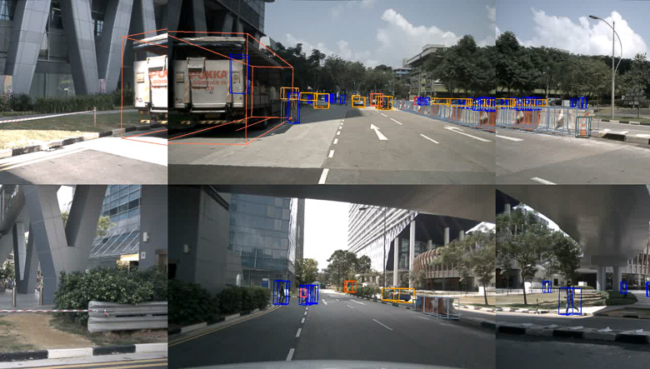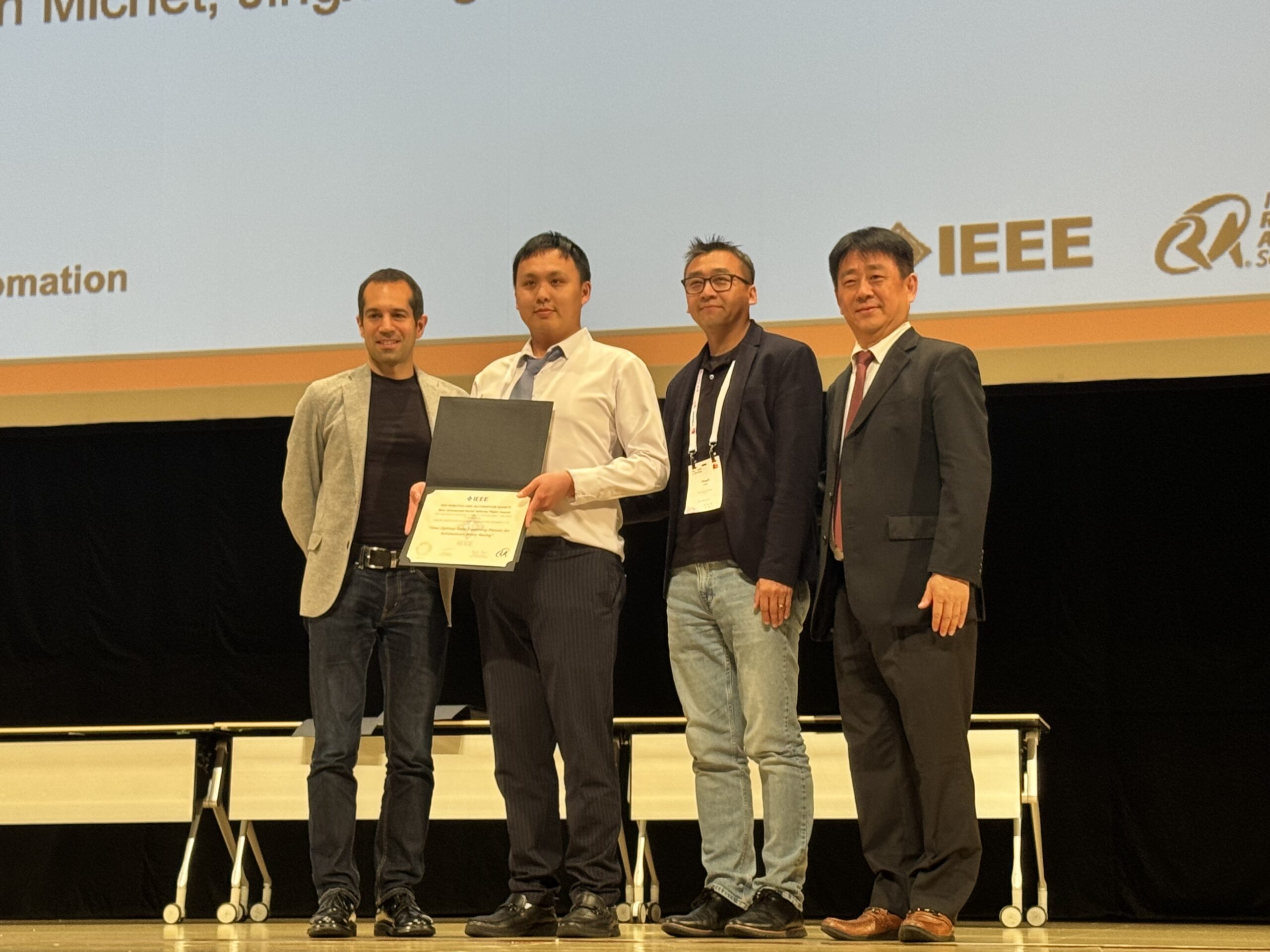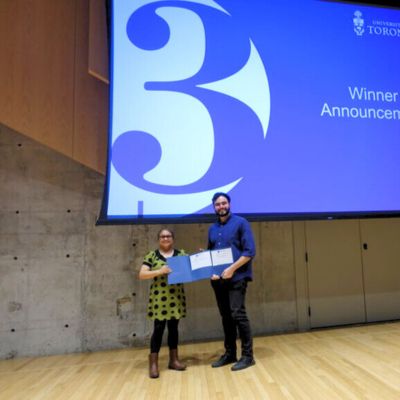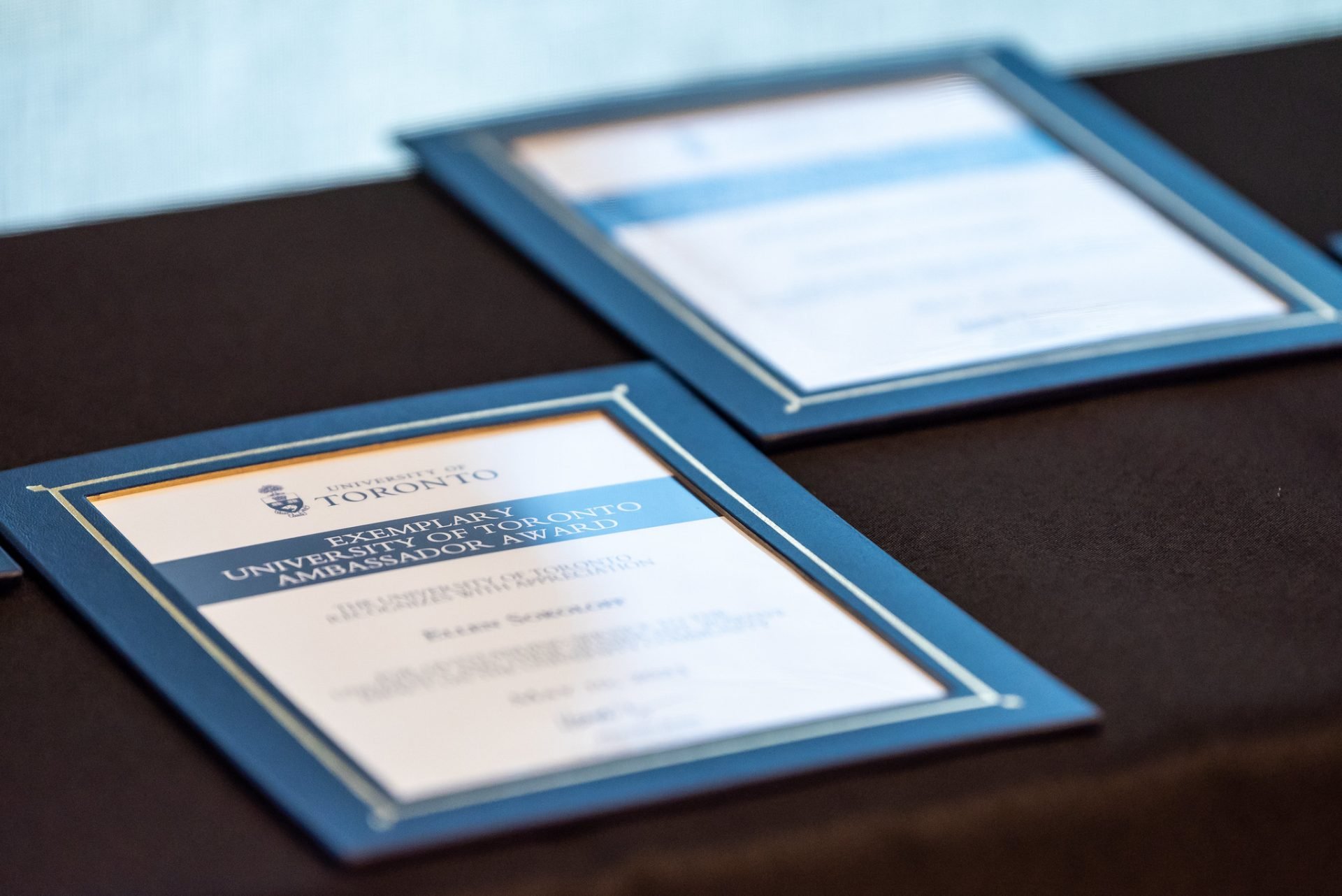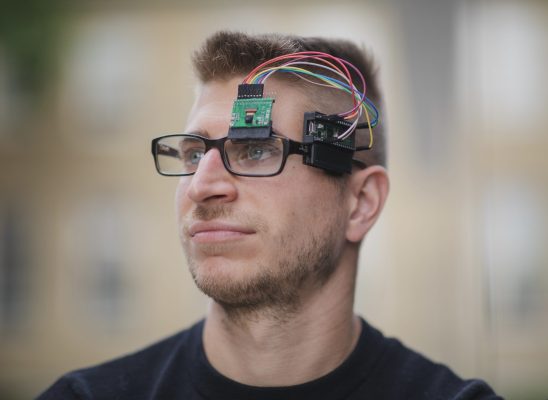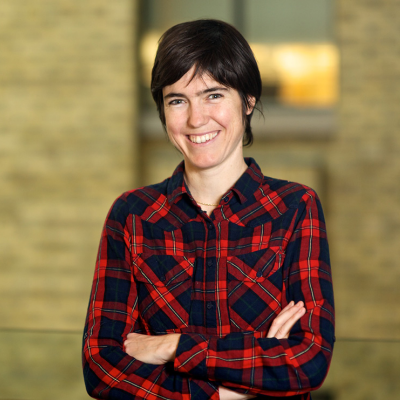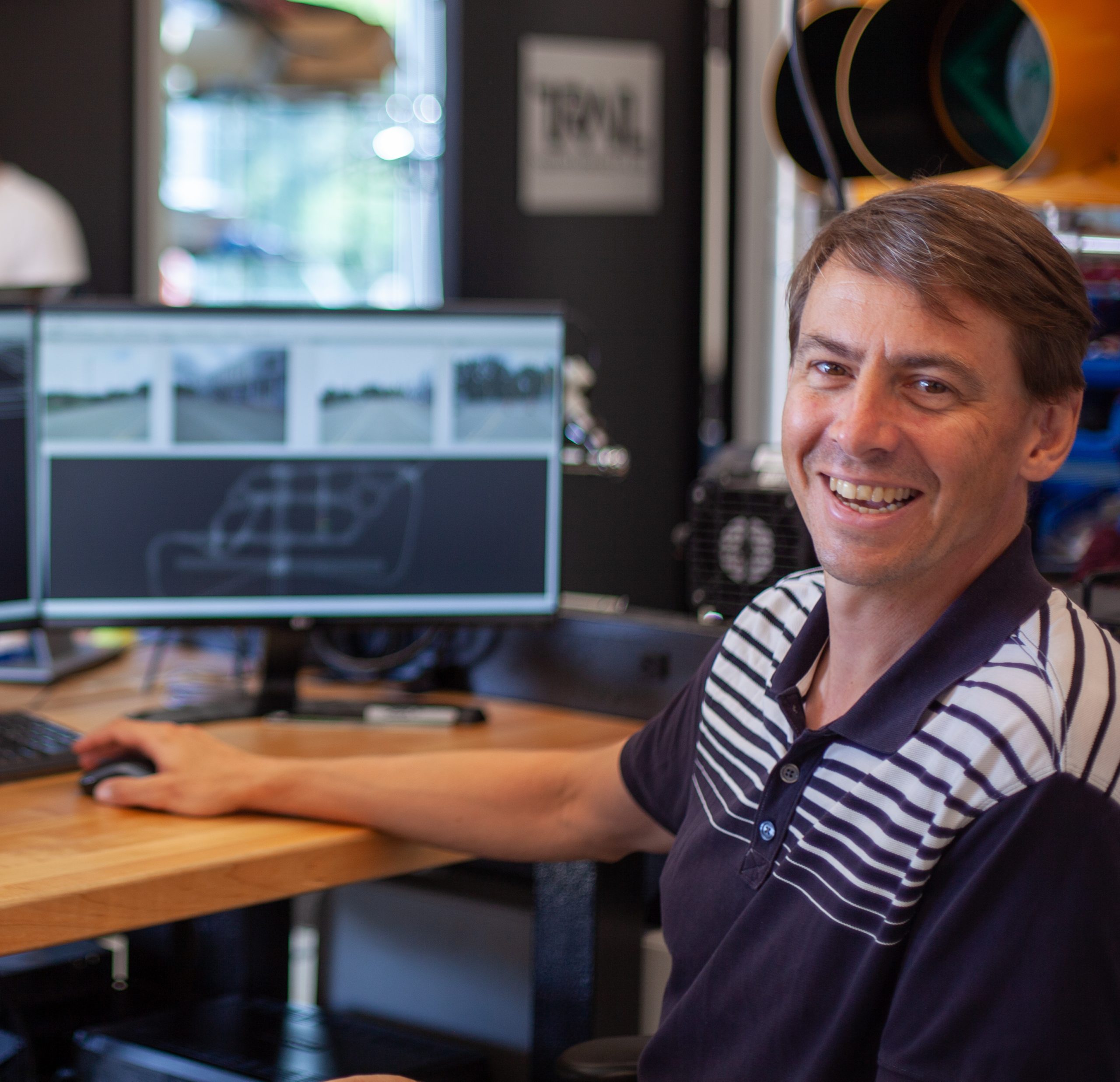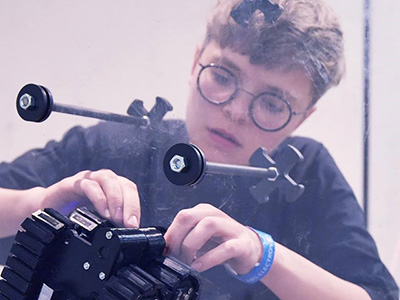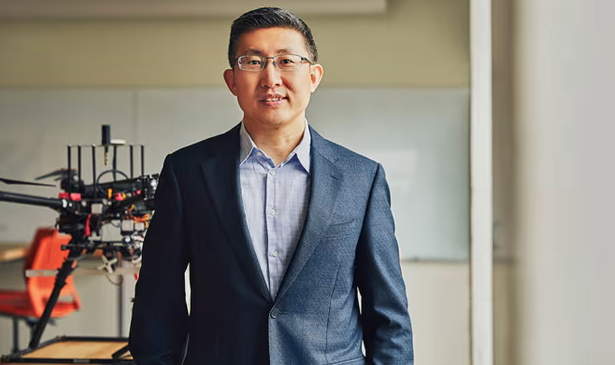U of T Robotics News
Robotics experts gather in Toronto to chart the sector’s future
In partnership with Next Generation Manufacturing Canada (NGen Canada), the Robotics Institute recently brought together over 160 attendees from across the country during the Canadian Robotics Council’s (CRC) third annual Symposium in Toronto.
Companies and unions must strive for consensus on robotics and automation at work: The Globe and Mail
The Globe and Mail’s Rita Trichur reports on what she heard while moderating the Canadian Robotics Council’s panel discussion on robots and the labour force.
Waabi, founded by U of T’s Raquel Urtasun, raises US$200 million to launch self-driving trucks
Waabi, a self-driving trucking startup founded by University of Toronto artificial intelligence (AI) expert Raquel Urtasun, has raised series B funding to support the deployment of fully autonomous, AI-powered trucks in 2025.
Toyota Research Institute partners with U of T researchers to advance vision-language models for robot manipulation
A new partnership between Florian Shkurti and Igor Gilitschenski and Toyota Research Institute aims to ensure safe and reliable human-robot interaction.
U of T Engineering researchers are making self-driving cars safer by enhancing tracking abilities
A team of University of Toronto engineering researchers are working to enhance the reasoning ability of robotic systems, such as autonomous vehicles, with the goal of increasing their reliability and safe operation in changing environments.
Hugh Liu receives best paper award at ICRA 2024
Hugh Liu and his team received the 2024 IEEE ICRA Best Paper Award on Unmanned Aerial Vehicles.
Robotics Institute graduate student places first in U of T Three Minute Thesis Competition
Robotics Institute graduate student, Daniil Lisus, received first place and People’s Choice Award at the U of T 3MT Competition in March.
Robotics Leadership Program awarded U of T Excellence Through Innovation Award
The Robotics Leadership Program received a 2023-24 Excellence Through Innovation Award from the University of Toronto for its innovative delivery of graduate leadership training.
Spotlight: Brokoslaw Laschowski
T-CAIREM caught up with Brokoslaw Laschowski to learn about how he’s merging humans with robotics and artificial intelligence (AI) to improve health and performance.
Raquel Urtasun appointed to the Order of Ontario
Raquel Urtasun, Robotics Institute faculty member and founder and CEO of Waabi, appointed one of 25 recipients of the Order of Ontario for 2023—the province’s highest civilian honour.
Steve Waslander talks about the future of autonomous driving on CBC’s The Current
What does the recall of two million Teslas mean for the future of autonomous driving? Autonomous vehicle expert, Steve Waslander, joined Matt Galloway from CBC News’ The Current to talk about autonomous vehicle safety, design and what’s next for the industry.
Robotics Institute and UTRA host Robotics Graduate Studies Information Session
Undergraduate students interested in graduate studies in robotics can attend an information session on Tuesday, November 28 from 6-8:30 p.m. in Myhal 580 to learn more about the exciting research opportunities at the Robotics Institute.
Maria Yablonina featured in Azure Magazine as one of six global design talents
Maria Yablonina was featured as one of six Global Design Talents by Azure Magazine for her innovative robotics approach to architecture and digital fabrication.
Hugh Liu and Steve Waslander speakers at Toronto region industry and innovation showcase
Liu and Waslander will participate in expert panel discussions at the Toronto Region Board of Trade’s first-ever innovation showcase on October 30.
Sheila McIlraith co-authors consensus paper on AI risks and governance
Sheila McIlraith is one of 24 international AI experts who propose a path forward to mitigate the risks and challenges associated with advanced AI systems.
Robotics Institute researchers win 2022 Sony Focused Research Award
Nandita Vijaykumar and Igor Gilitschenski jointly received a 2022 Sony Focused Research Award to explore neural radiance fields—a transformative deep learning technique used in computer graphics and computer vision to represent and render 3D scenes.
Yu Sun named a fellow of the Canadian Academy of Health Sciences
Yu Sun is one of 13 U of T researchers recently named a fellow of the Canadian Academy of Health Sciences in recognition of his leadership, creativity and commitment to advancing academic health sciences.
Tiny robots, giant steps: how nanotechnology could improve cancer and fertility treatment
Yu Sun’s nano-robotic research is helping the medical world tackle some of its most perplexing problems – from brain cancer surgery to in-vitro fertilization.
Brokoslaw Laschowski’s research featured on CityNews Toronto
“Bionic professor”, Brokoslaw Laschowski, gives CityNews Toronto an inside look at his robotics and AI research.
Sheila McIlraith awarded 2023 IJCAI-JAIR Best Paper Prize
Sheila McIlraith, was awarded the 2023 International Joint Conferences on Artificial Intelligence Organization (IJCAI) and Journal of Artificial Intelligence Research (JAIR) Best Paper Prize for groundbreaking AI research.
Raquel Urtasun named one of the most influential people in AI by TIME
Urtasun is recognized as a leader in autonomous vehicle technology for founding autonomous-trucking start-up Waabi.

